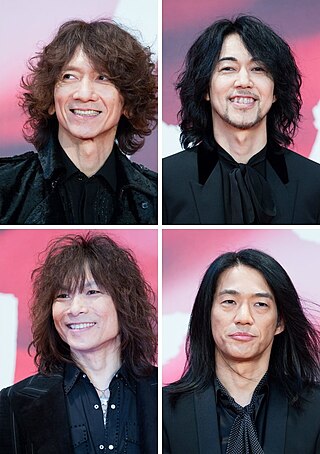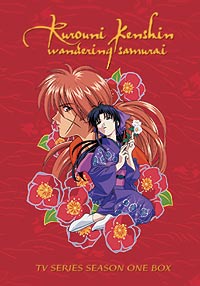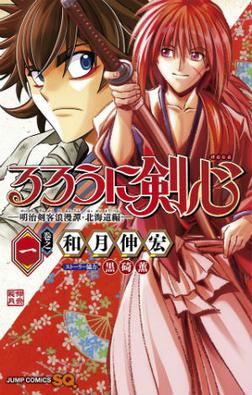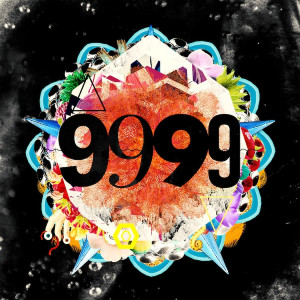Kazuya Nakai is a Japanese voice actor and narrator who was born in Kobe, Japan. He plays Roronoa Zoro in One Piece, Toshiro Hijikata from Gintama, Date Masamune from Sengoku Basara, Xiahou Dun and Dian Wei from Dynasty Warriors and Warriors Orochi series, Shinjiro Aragaki from the Persona series, Mugen from Samurai Champloo, Mondo Owada from the Danganronpa series, Ultraman Max in Ultraman Max and Jin Sakai in the Japanese dub of the video game Ghost of Tsushima.

The Yellow Monkey, sometimes abbreviated as Yemon, is a Japanese rock band originally active from 1988 to 2001, before officially disbanding in 2004. They announced their reformation in 2016.

Kaori Manabe is a Japanese talent, gravure idol and actress. She was born on May 31, 1980, in Ehime Prefecture, Japan.

"Be My Last" is Hikaru Utada's 14th Japanese single, released on September 28, 2005. It was used for the 2005 film Spring Snow, an adaptation of the 1966 Yukio Mishima novel of the same name.

"Makafushigi Adventure!" is a song by Japanese musician Hiroki Takahashi, released on vinyl and cassette on March 1, 1986. It was Takahashi's debut single.

"Oriental Diamond/Kuchibiru Motion" is a single from Puffy AmiYumi.

The first season of the 1996 Rurouni Kenshin anime television series is directed by Kazuhiro Furuhashi and produced by Aniplex and Fuji Television. The series premiered in Japan on Fuji Television and ran from January 10 to October 16, 1996. The episodes are based on the first six volumes of the manga series of the same name by Nobuhiro Watsuki. Situated during the early Meiji period in Japan, the story tells of a fictional assassin named Kenshin Himura, who becomes a wanderer to protect the people of Japan.

"1/3 no Junjō na Kanjō" is a song by the Japanese rock band Siam Shade, released in 1997. The song was first released as their sixth single on November 27, 1997, and also featured on their fourth studio album Siam Shade IV - Zero, released on January 21, 1998.

Jinsei×Boku= is the sixth studio album by the Japanese rock band, One Ok Rock. It was released on March 6, 2013 and reached second place on the Oricon weekly chart. This album brought One Ok Rock to worldwide popularity, especially after the first single, "The Beginning", was selected as official soundtrack in the live action adaptation of Rurouni Kenshin. The song peaked at number 2 on the Billboard Japan Hot 100 and stayed for 45 weeks. The next single, "Deeper Deeper/Nothing Helps", was featured on the DmC: Devil May Cry game and used for Suzuki Swift TV commercials.

BRADIO is a Japanese funk rock band. Their name is an acronym for "Break the Rule And Do Image On" and means that they will break the rules of everyday life, and while having a wonderful image all around, they will make a new good place. The members call their fans Funky Party People (FPP).
Masakazu Mori, better known by his stage name Yukinojo Mori, is a Japanese lyricist, composer and poet who is affiliated with Amuse, Inc. He has written over 2,500 songs for numerous artists such as Kyosuke Himuro, Takuro Yoshida and Junichi Inagaki and theme songs for anime series including Dragon Ball Z and Kinnikuman.

Bish, stylized as BiSH, was a Japanese alternative idol girl group that was founded in 2015 by their manager Junnosuke Watanabe. The group was conceived as a successor to Bis, an idol group managed by Watanabe that disbanded in 2014. They disbanded in June 2023.

Kazuya Yoshii is a Japanese musician and singer-songwriter. He is best known as lead vocalist and rhythm guitarist of the rock band The Yellow Monkey. When they went on hiatus in 2001, before officially disbanding three years later, Yoshii started a solo career in 2003 under the name Yoshii Lovinson. He switched back to his old name in 2006 and The Yellow Monkey reformed in 2016.

"Chōzetsu Dynamic!" is the fourteenth single by Japanese rock musician Kazuya Yoshii, released on October 7, 2015, by Triad/Nippon Columbia. It is the first opening theme song of the Dragon Ball Super anime series. The single reached number 13 on both the Oricon Singles Chart and Billboard Japan's Hot 100.
Kana-Boon is a Japanese rock band formed in 2008. They made their major debut with Ki/oon Music in 2013. Ever since, they've had four albums reach the top ten on the weekly Oricon Albums Chart, with Doppel being their best-charting album, reaching the third place on the chart. They have also had five singles reach the top ten on the weekly Oricon Singles Chart, with "Full Drive" (フルドライブ) being their best-charting single, reaching the sixth place on the chart. Three of their singles have been used in the Naruto franchise, with "Silhouette" being used as the 16th Naruto: Shippuden opening theme, and "Diver" as the theme song for Boruto: Naruto the Movie and "Baton Road" as the first season opening for Boruto: Naruto Next Generations. The B-side for "Diver", "Spiral", was the theme song for Naruto Shippuden: Ultimate Ninja Storm 4 video game.

The discography of the Japanese rock band One Ok Rock consists of ten studio albums, two EPs, and thirty-one singles. One Ok Rock was formed in Tokyo, Japan in 2005, consists of Takahiro Moriuchi (vocals), Toru Yamashita (guitar/leader), Ryota Kohama (bass) Alex,(formerly) on guitar, and Tomoya Kanki (drums). One Ok Rock have sold more than 3 million records worldwide.

Rurouni Kenshin: The Hokkaido Arc is a Japanese manga series written and illustrated by Nobuhiro Watsuki. His wife, Kaworu Kurosaki, is credited as a story consultant. It is a direct sequel to Rurouni Kenshin and follows Himura Kenshin and his friends in 1883 Japan as they traverse Hokkaido in search of his father-in-law.

9999 is the tenth studio album by Japanese rock band The Yellow Monkey, released on April 17, 2019 by Atlantic Records. It is the band's first album of new material in 19 years and their first since reuniting in 2016. The album was produced by lead singer Kazuya Yoshii, who also wrote almost all of the songs.

"Bye-Bye Show" is the twenty-first and final single by the Japanese girl group Bish, released on March 22, 2023, by Avex Trax. The single sold 138,000 copies in its first week of release and topped the Oricon Singles Chart and Japan Hot 100.
Ihojin is a song written and composed by Saki Kubota, and first performed by her. The song was first released as a single on 1 October 1979. That recording sold more than 1.4 million copies and reached number 1 in the Japanese singles chart. The song was used in the "Silk Road" television commercial for Sanyo.















